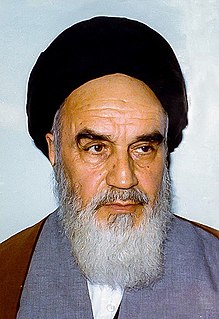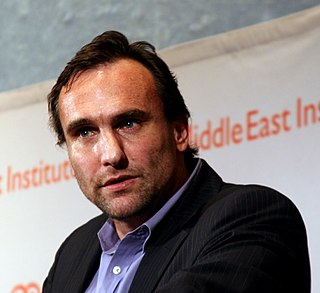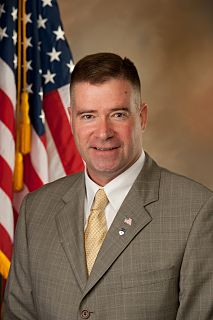A Quote by Akbar Ganji
I am against revolution and am proud of it. Democracy cannot be created through revolutions. The most important dichotomy that I make for a society is between those who support democracy and human rights, and those who oppose it. In a totalitarian state, the state views any act of an individual to be political in nature. For example, the clothing that a person wears in a modern state is a private affair whereas in the Islamic Republic all women are forced to wear the hijab (Islamic attire). When women push their headscarf back an inch or two, this is interpreted to be a political act.
Quote Topics
Act
Affair
Against
All Women
Am
Any
Attire
Back
Between
Cannot
Clothing
Created
Democracy
Democracy And Human Rights
Dichotomy
Example
For Example
Forced
Hijab
Human
Human Rights
Important
Inch
Individual
Interpreted
Islamic
Make
Modern
Most
Nature
Oppose
Person
Political
Private
Proud
Push
Republic
Revolution
Revolutions
Rights
Society
State
Support
The Most Important
Those
Through
Totalitarian
Totalitarian State
Two
Views
Wear
Wears
Whereas
Women
Women Are
Related Quotes
If it comes to a question of law, the charges they brought against me - the Espionage Act - is called the quintessential political crime. A political crime, in legal terms, is defined as any crime against a state, as opposed to against an individual. Assassination, for example, is not a political crime because you've killed a person, an individual, and they've been harmed; their family's been harmed. But the state itself, you can't be extradited for harming it.
Abortion on demand is the ultimate State tyranny; the State simply declares that certain classes of human beings are not persons, and therefore not entitled to the protection of the law. The State protects the 'right' of some people to kill others, just as the courts protected the 'property rights' of slave masters in their slaves. Moreover, by this method the State achieves a goal common to all totalitarian regimes: it sets us against each other, so that our energies are spent in the struggle between State-created classes, rather than in freeing all individuals from the State.
The proportion of women attracted to the Islamic State is likely to be less than that in other militant organisations, such as the Tamil Tigers, the PKK, and the IRA. Undoubtedly, their roles within the Islamic State are much more confined by the rigid gender divisions under their ultraconservative rulings.
In fact all the Islamists, that is the reformists not the Salafis, now they all say that they want a civil state, a civil state with Islamic reference points. They are not talking about an Islamic state, or sharia in the way this was once understood in the fight against the colonisers, or just afterwards in the 70's, 80's and 90's.
[W]hich category of crimes does the State pursue and punish most intensely? [T]hose against private citizens or those against itself? The gravest crimes in the State's lexicon are almost invariably not invasions of private person or property, but dangers to its own contentment, for example, treason, desertion of a soldier to the enemy, failure to register for the draft, subversion and subversive conspiracy, assassination of rulers and such economic crimes against the State as counterfeiting its money or evasion of its income tax.
That's precisely what I did. Let's not forget Raqqa is not the first capital of the Islamic State. The first capital of the Islamic State when it was called the Islamic State was the Iraqi city of Ramadi. And the only way I was able to access that city was by going in with American marines and soldiers who were desperately fighting for their lives.
Louis XIV was very frank and sincere when he said: I am the State. The modern statist is modest. He says: I am the servant of the State; but, he implies, the State is God. You could revolt against a Bourbon king, and the French did it. This was, of course, a struggle of man against man. But you cannot revolt against the god State and against his humble handy man, the bureaucrat.
[T]here are, at bottom, basically two ways to order social affairs, Coercively, through the mechanisms of the state - what we can call political society. And voluntarily, through the private interaction of individuals and associations - what we can call civil society. ... In a civil society, you make the decision. In a political society, someone else does. ... Civil society is based on reason, eloquence, and persuasion, which is to say voluntarism. Political society, on the other hand, is based on force.
By assigning his political rights to the state the individual also delegates his social responsibilities to it: he asks the state to relieve him of the burden of caring for the poor precisely as he asks for protection against criminals. The difference between pauper and criminal disappears - both stand outside society.
I define anarchist society as one where there is no legal possibility for coercive aggression against the person or property of any individual. Anarchists oppose the State because it has its very being in such aggression, namely, the expropriation of private property through taxation, the coercive exclusion of other providers of defense service from its territory, and all of the other depredations and coercions that are built upon these twin foci of invasions of individual rights.
































